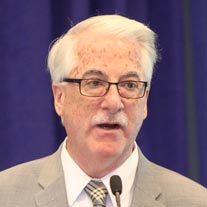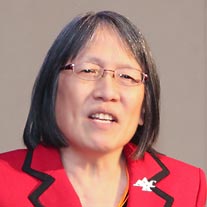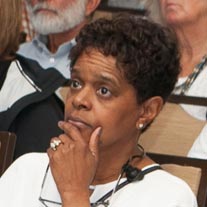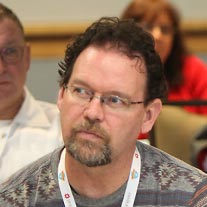AARC Pre-course
Maximize your attendance by registering for Laying the Foundation, presented by AARC on Saturday, June 24.
1:00 pm–4:55 pm
Pre-course — American Association for Respiratory Care (AARC)
Laying the Foundation
Shawna L Strickland PhD RRT-NPS RRT-ACCS AE-C FAARC/Presiding
Respiratory therapy educational programs have the opportunity to position their graduates for great success in the changing landscape of health care. The pre-course will highlight how program faculty can develop graduates that are prepared to deliver evidence-based care and adapt to changing professional needs.
Course capacity is limited. Approved for 3.49 hours of continuing education credits (CRCE). You must attend the entire course to receive CRCE credit; no partial credit will be awarded.

1:00 pm–1:30 pm | Arizona 2–5 | Education
Fostering Positive Educational and Professional Outcomes
Shawna Strickland PhD RRT-NPS RRT-ACCS AE-C FAARC, Irving TX
The overview session will set the stage for the remainder of the pre-course by exploring skills and competencies that employers’ desire in respiratory care graduates, and by exploring the importance of professional development in preparing graduates for success.

1:35 pm–2:25 pm | Arizona 2–5 | Education
The Accreditors are Coming, The Accreditors are Coming! Relax; it is All About the Process
David L Vines MHS RRT FAARC FCCP, Chicago IL
Accreditation is a vital aspect of higher education. Programs are required to submit annual reviews and participate in regularly scheduled site visits from the accrediting agency. It is important for the respiratory care professional program to understand accreditation standards as set forth by CoARC to meet outcome measures for not only the annual review but the site visit as well. This lecture will review important steps in preparing for a successful CoARC site visit.
2:25 pm–2:35 pm
Break

2:35 pm–3:25 pm | Arizona 2–5 | Education
The Critical Role of the Liberal Arts in the RC Curriculum
Bill Galvin MSEd RRT CPFT AE-C FAARC, Havertown PA
How often has a student said to you, “I’m studying to become a respiratory therapist; why do I have to take philosophy, sociology, and psychology?” The presenter will share surveys and anecdotal comments from liberal arts colleagues to make a compelling case for the role and value of incorporating the liberal disciplines in the RC curriculum.

3:30 pm–4:20 pm | Arizona 2–5 | Education
Plowing the Path for RTs to Earn Bachelor’s Degrees
Ellen Becker PhD RRT-NPS RPFT AE-C FAARC, Chicago IL
The AARC set a goal in 2015 for 80% of all respiratory therapists to have a bachelor's degree or to be working towards a bachelor’s degree by 2020. This presentation will highlight the ways that educators in associate and baccalaureate degree programs can help RT students in associate degree programs plan to complete a bachelor’s degree. Further, RT managers will learn how to guide working therapists toward helpful resources for completing this advanced degree.

4:25 pm–4:55 pm | Arizona 2–5 | Education
Why Become a Mentor?
Helen Sorenson MA RRT FAARC, San Antonio TX
Becoming a faculty mentor is a rewarding and challenging experience. Characteristics of a mentor include the three C’s: competence, confidence, and commitment. Mentors provide career guidance and support for the mentee. This relationship is an investment in the success of the mentee and the respiratory care program.



